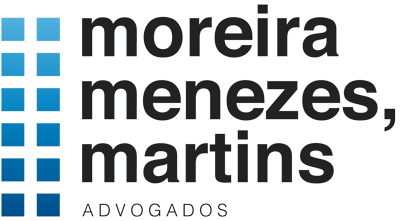Newsletter No. 85 | October 2021
In this edition:
Ministry of Economy regulates simplified publication of acts of unlisted corporations
On October 7, 2021, the Ministry of Economy (ME) issued ME Edict 12,071, involving the publication and disclosure of the acts of unlisted corporations with annual gross revenue lower than BRL 78 million (“Edict”).
The Edict is an offshoot of Complementary Law 182/2021, which among other matters altered the wording of Art. 294 of Law 6,404/76 (“Law of Corporations”) to permit unlisted corporations with annual gross revenue lower than or equal to the aforementioned limit to publish the acts required by law in simplified form and exclusively by electronic means.
Generally, according to its article 289, the acts required by the Law of Corporations must be published in the Diário Oficial da União (Official Federal Gazette) or the corresponding official vehicle of the state (or Federal District) where the company has headquarters seat, as well as in a commercial newspaper with wide circulation in the same locale.
Since the original enactment of the Law of Corporations, Art. 294 made an exception for unlisted corporations that satisfied certain criteria regarding the need to publish announcements of general meetings and financial statements. The former criteria were (i) the number of shareholders (up to 20) and (ii) the maximum net worth (up to R$ 10 million).
With enactment of Complementary Law 182/2021, the exception was changed, only depending on the annual gross revenue (BRL 78 million), and became applicable to the publication of all acts required by the Law of Corporations. The objective of the Complementary Law is to reduce the costs of this type of corporation and to encourage smaller companies to organize in this form.
The efficacy of the new wording of Art. 294 of the Law of Corporations depended on regulation by rules published by the Ministry of the Economy, prompting publication of the Edict, which establishes that the publications of unlisted corporations that satisfy the mentioned criteria can be accomplished: (i) via the Center for Balance Sheets of the Digital Public Bookkeeping System – SPED (with no charge for the use of the service); and cumulatively, (ii) at the company’s website.
All the acts disclosed via the Center for Balance Sheets of the SPED and the company’s website must contain an electronic signature with digital certification.
Finally, the Edict also determines that the SPED shall permit the issuance of documents that prove the authenticity, inalterability and date of publication of the acts disclosed via the Center for Balance Sheets.
The Edict took effect on October 13, 2021, the date of its publication.
More information, including the full text of the Edict (in Portuguese) can be found at the website of the Ministry of the Economy (www.economia.gov.br).
ANBIMA proposes definition of criteria to identify sutainable investment funds by self-regulation
On September 20, 2021, the Association of Financial and Capital Market Entities (ANBIMA) submitted to public hearing adjustments to the Code of Management of Third-Party Funds, involving, among other alterations, the creation of rules and procedures for identification of sustainable investment funds (“Rules and Procedures”).
According to the current classification of investment funds, a sub-category exists for sustainability/governance that only applies to stock funds. However, as pointed out by ANBIMA, a study conducted in 2020 revealed that other investment funds (not identified in the current sustainability/governance sub-category) call themselves “green”, sustainable or ESG (environmental, social and corporate governance).
In light of this situation, by proposing the Rules and Procedures, ANBIMA aims to: (i) to assure solid bases for the development of Sustainable Investment Funds (which will be called “IS”), due to the growing demand for ESG products in the Brazilian market; and (ii) to establish a definition for the other funds that already identify themselves as ESG.
According to Art. 1, § 1, of the Rules and Procedures, the funds investing in fixed-income instruments and shares regulated by CVM Instruction 555/2014 that meet the criteria set out in the Rules and Procedures can be identified as Sustainable Investment Funds.
Among the requirements applicable to the portfolio managers of IS Funds (as per Chapter II of the Rules and Procedures) are the following:
(i) policy regarding ESG aspects: the manager of IS Funds must prepare, maintain and publicize at its website a written document with internal guidelines, rules and procedures adopted by the institution involving questions of sustainable investment; and
(ii) professional responsible for ESG aspects: the portfolio manager of IS Funds must hire qualified professionals with functions and responsibilities to promote the management objectives of sustainable investment funds.
The new rules referring to the managers of IS Funds apply to all the managers of investment funds with the objective of sustainable development, including the managers of funds that are currently identified in some way as sustainable, such as the stock investment funds in the existing sustainability/governance sub-category.
Among the requirements applicable to IS Funds, as set forth in Chapter III of the Rules and Procedures, the following stand out:
(i) provisions in bylaws: IS Funds must include in their bylaws a summary of the objectives of sustainable investment;
(ii) specific investment strategy: It will be necessary to adopt an investment strategy that includes at least: (a) the method used to achieve the sustainable investment objectives; (b) the sources of reference of the information used in conformity with the method and how that information is processed; and (c) other tools employed that complement or support this strategy; and
(iii) management: IS Funds will have to be managed by a professional or entity that meets the requirements of managers of investment funds set out in the Rules and Procedures.
The requirements listed in the Rules and Procedures must be attested and reported to ANBIMA in the form requested, in which respect the Association can indicate a standard and frequency for monitoring and verifying each of them.
Finally, the Rules and Procedures stipulate, in Chapter III, the possibility for certain funds to be classified as “Funds that Integrate ESG Questions”. Funds that do not have sustainable investment as their main objective, but consider some ESG questions in their investment policies can be included in this classification.
When classified as “Funds that Integrate ESG Questions”, the funds can express this in their publicity materials, as long as they abide by the requirements and limits set forth in Chapter III of the Rules and Procedures, which include:
(i) the need to adopt a method to integrate ESG questions (e.g., the selection to invest in assets according an evaluation of ESG aspects); and
(ii) the need to use information, metrics and/or indicators that allow identifying the ESG characteristics of the assets in their portfolios.
Suggestions and comments regarding the Rules and Procedures must be sent in writing by October 29, 2021 to ANBIMA, to the e-mail address “audiencia.publica@anbima.com.br”, or by means of the Workplace of ANBIMA, a space exclusively for tis members.
More information, including the full content (in Portuguese) of the Rules and Procedures, can be found at the website of ANBIMA (www.anbima.com.br).
Brazilian Central Bank authorizes expanded use of foreign derivatives by members of the financial market
On September 30, 2021, the Brazilian Central Bank (BACEN) published CMN Resolution 4,948/2021, which expands the possibilities of using foreign derivatives by members of the financial market (“Resolution”).
The Resolution alters (i) CMN Resolution 3,568/2008, which covers the foreign exchange market; and (ii) CMN Resolution 4,033/2011, which regulates investments abroad in foreign currency by banks authorized to operate in the foreign exchange market and on fundraising abroad for that purpose. Furthermore, the new Resolution revokes (i) CMN Resolution 3,312/2005, which covers the use of hedging by financial institutions abroad or in foreign exchanges; and (ii) CMN Resolution 3,833/2010, which had modified the previous one in 2005.
Until the issuance of the new Resolution, the transactions carried out by Brazilian market players with foreign derivatives were restricted to hedge transactions to protect commercial and financial rights or obligations.
That being the case, the Resolution, which will take effect on January 2, 2022, establishes a new regulatory framework by allowing financial institutions and other institutions authorized to function by the BACEN to engage in transactions with derivatives of any type, as long as executed regularly in the international market.
More information, including the full text of the Resolution (in Portuguese) can be found at the website of the Central Bank of Brazil (www.bcb.gov.br).
- latest news
São Paulo
Rua Gomes de Carvalho, n° 1507, 2º andar – Vila Olímpia
04547-005 – São Paulo – SP
+55 (11) 4210-4010
Rio de Janeiro
Rua Joana Angélica, n° 228 – Ipanema
22420-030 – Rio de Janeiro – RJ
+55 (21) 2523-5960



